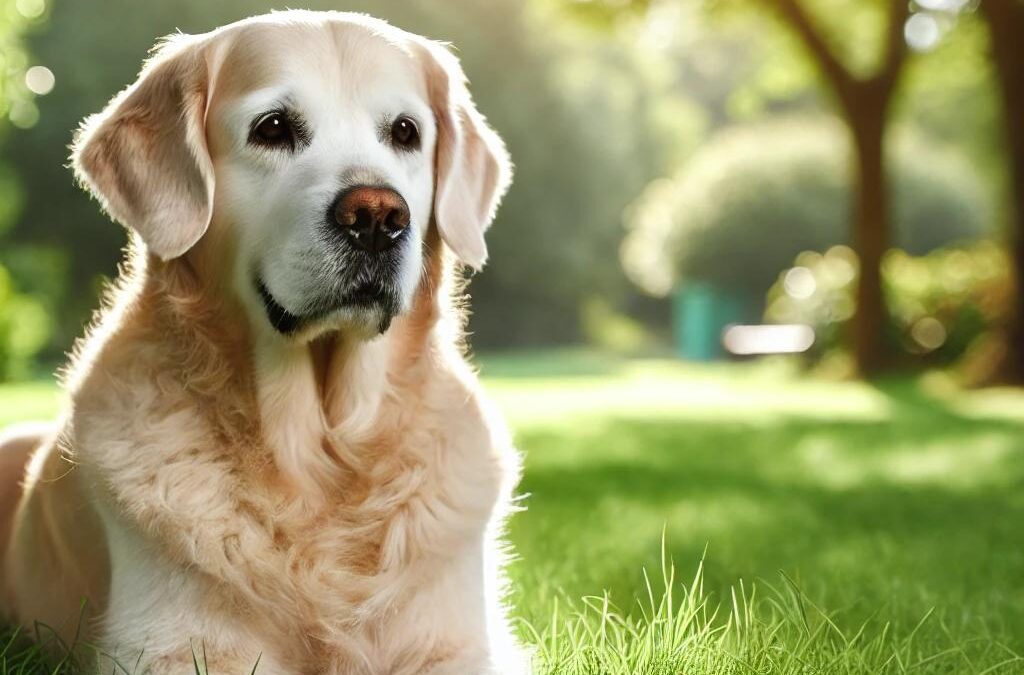隨著狗狗年齡的增長,它們變得更容易受到各種健康問題的影響,包括癌症。一種對老年犬影響尤為嚴重的癌症是肺癌。雖然狗的肺癌相對罕見,但年齡較大的狗患這種疾病的風險更高。了解這種風險增加背後的原因以及老年犬患肺癌的症狀可以幫助寵物主人採取預防措施並確保早期發現。
為什麼老年犬罹患肺癌的風險更大?
- 自然老化過程
隨著狗狗年齡的增長,它們的身體細胞再生和免疫功能會自然下降。這意味著年齡較大的狗的細胞更有可能發生突變,從而導致癌症的發生。肺部細胞和體內其他組織一樣,都會經歷這個過程,讓老年犬更容易罹患肺部腫瘤。 - 較長時間接觸環境毒素
與年幼的狗相比,年長的狗接觸環境毒素的時間更長。污染物、化學物質甚至二手菸等毒素會隨著時間的推移而在他們的體內累積。這些物質會損害肺組織,使腫瘤更容易形成。生活在城市環境或吸煙的家庭中的狗可能面臨更高的風險。 - 免疫系統減弱
免疫系統在癌細胞擴散之前識別和消滅癌細胞方面發揮著至關重要的作用。然而,隨著狗狗年齡的增長,它們的免疫系統會減弱,使其消除異常細胞的效率降低。免疫功能的下降會增加老年犬罹患肺癌的可能性。 - 慢性呼吸系統疾病
年長的狗更容易患有慢性呼吸道疾病,例如支氣管炎或感染,隨著時間的推移,這些疾病會削弱肺組織。肺部的慢性發炎會創造一個更有可能繁殖癌細胞的環境。隨著年齡的增長,有呼吸道疾病史的狗狗應該密切監測肺癌的跡象。
老年犬肺癌的常見症狀
狗的肺癌在早期通常沒有明顯的症狀,因此很難被發現。然而,隨著疾病的進展,可能會出現某些症狀。這些包括:
- 持續咳嗽:隨著時間的推移持續不斷的乾咳可能是肺癌的早期徵兆。
- 呼吸困難:呼吸困難或呼吸短促可能表示肺部有問題。
- 昏睡:能量水平明顯下降或不願意運動可能是一個警告信號。
- 食慾不振:如果您的老狗突然對食物失去興趣,這可能是生病的徵兆。
- 不明原因的體重減輕:快速或不明原因的體重減輕通常是狗狗癌症的症狀。
- 鼻涕:鼻子出現任何異常分泌物可能與肺部問題有關。
如果您的老年犬出現任何這些症狀,有必要諮詢獸醫進行徹底檢查。早期發現肺癌可以提高成功治療的機會。
老年犬肺癌的診斷
如果懷疑老年犬患有肺癌,獸醫通常會開始進行 X 光或超音波等影像檢查,以檢查肺部是否有腫瘤。這些測試可以揭示任何異常生長的大小、位置和擴散。在某些情況下,可能需要 CT 掃描或活檢等額外測試來確認診斷並確定肺癌類型。
老年犬的肺癌類型
有幾種類型的肺癌會影響狗,最常見的是 腺癌,起源於肺組織內壁的細胞。其他類型包括 鱗狀細胞癌 和 支氣管癌。這些癌症的侵襲性和擴散(轉移)至其他器官的可能性各不相同。
在老年犬中,由於免疫系統減弱和長期暴露於危險因素,腫瘤通常更具侵襲性。
老年犬肺癌的治療選擇
老年犬肺癌的治療取決於癌症的類型和分期。常見的治療方案包括:
- 手術:如果腫瘤是局部的且尚未擴散,可以選擇手術切除受影響的肺葉。如果癌症及早發現,這可能是一種非常有效的治療方法。
- 化療:化療可用於無法進行手術或癌症擴散到身體其他部位的情況。化療有助於減緩疾病的進展,但可能無法治癒疾病。
- 放射治療:放射有時與手術或化療結合使用,以縮小腫瘤並減輕症狀。
- 安寧療護:在癌症晚期的情況下,可能會建議進行安寧療護,以改善狗的生活品質並控制疼痛或呼吸困難等症狀。
如何預防老年犬肺癌
雖然肺癌不能總是預防,但您可以採取一些措施來降低您的狗患肺癌的風險:
- 避免二手煙:不要在您的狗周圍吸煙,因為接觸二手煙會增加肺癌的風險。
- 讓你的狗保持活躍:定期運動有助於維持肺部健康並增強免疫系統。
- 提供健康的飲食:富含抗氧化劑的均衡飲食有助於支持愛犬的整體健康。
- 定期獸醫檢查:每年或每兩年一次的獸醫檢查對於及早發現任何癌症跡象至關重要,尤其是對於老年犬。
隨著狗狗年齡的增長,由於免疫系統減弱、長期接觸毒素和慢性呼吸道疾病等因素,它們變得更容易患肺癌。寵物主人應該注意老年犬的肺癌症狀,如果有任何跡象,請尋求獸醫護理。早期診斷和適當的治療可以提高狗的生活品質和壽命。















